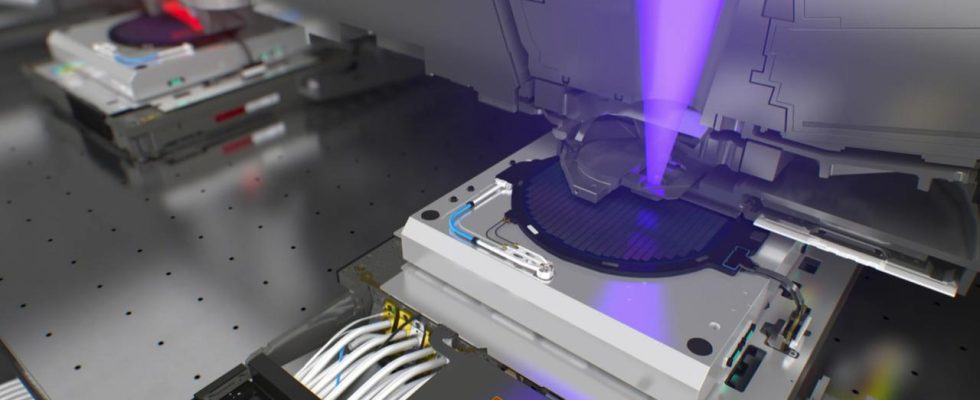european magazine
European companies are worried that their location will lose touch with the global market: leading managers are calling on the EU to place a greater focus on innovation and future technologies.
When Uwe Lauber walks past the old brick factory buildings from the 19th century, at first glance he doesn’t seem like a driver of climate-friendly technologies. The CEO of MAN-ES, the energy division of the Volkswagen subsidiary MAN, still has diesel ship engines produced at its headquarters in Augsburg, which emit a lot of CO2 on the world’s oceans.
But Lauber is also a pioneer of a new green energy source: large-scale heat pumps. “You won’t find the size, dimensions and power density of our large heat pumps anywhere in the world. They could supply an entire city like Augsburg with energy,” he enthuses. But instead of in Augsburg, Lauber is currently putting the world’s largest heat pump into operation in Esbjerg, Denmark.
The largest heat pump in the world is in Esbjerg, Denmark – although manufacturer MAN-ES would prefer it to be in Germany.
The black cuboid system supplies 100,000 people with climate-neutral heat, so that the old coal-fired power plant next door can be switched off. As a southern German, Uwe Lauber is angry that future technologies are having a harder time in Germany than elsewhere. “It annoys me that I have to take my technology abroad. We could also promote large-scale heat pumps in Germany, but this technology in the sense of decarbonization is not yet established in many people’s minds.”
In addition to large heat pumps, Lauber also develops electrolyzers for green hydrogen and reactors for methanol synthesis. He complains that bureaucracy and complicated multi-stage approval procedures are slowing down application in all areas in this country. “Germany has no idea how to quickly approve new technologies. Our own processes prevent us from doing so. In Germany I have the feeling that we talk new technologies to death first instead of saying: Give it a chance.”
Five authoritative ones Future industries
Lauber calls for more pragmatism and determination in the implementation of climate-friendly innovations. It is also about the question of what role Europe’s economy plays in the digital and ecological change. Former central bank chief Mario Draghi recently called for an additional 500 billion euros per year to close “investment gaps” in Europe. Draghi wants to present a detailed report for a more competitive EU on behalf of the EU Commission in the summer.
One of the most competitive companies in Europe is ASML from Veldhoven, Netherlands. The group produces the most powerful machines for chip production. Companies such as Intel, TSMC and Nvidia depend on this top European technology. The key to success was that ASML invested billions in research and development at an early stage.
ASML CFO Roger Dassem sees major deficits in future technologies in Europe.
From the perspective of CFO Roger Dassen, ASML is one of the exceptions in Europe, which is increasingly losing touch with global competition: “I don’t see that Europe is sufficiently promoting the five key industries: semiconductor industry, biotechnology, automotive industry, battery technology and green energy sources.”
Dassen sees too many national solo efforts in these critical industries instead of a united European approach with a kind of New Industrial Act in order to remain a global technology leader. “If this systematic support does not happen, Europe will no longer be able to compete with the United States and Asia. That would be a shame.”
Act quickly to catch up
The Imec Institute in Leuven, Belgium – one of Europe’s leading high-tech research institutions – also believes that the next EU Commission must act quickly and decisively. Imec chief strategist Jo De Boeck sees Europe’s research in a leading position. But there is significantly less risk capital for implementation here than in the USA or China: “We have to ensure that Europe integrates the capital market more closely and that new players are added that better support the growth of start-ups,” he demands.
One example is artificial intelligence. Europe can take the lead in the development of safe, understandable and responsible AI if there is a determined focus on it. However, when it comes to venture capital alone, there are tax advantages in the USA compared to Europe, which is why many European start-ups relocate to the USA.
But it’s not just the USA – China is now also ahead in the industry, as European experts admit with concern. The Middle Kingdom is threatening to “undermine” Europe’s industrial base, believes former ECB boss Draghi. MAN-ES board member Uwe Lauber simply believes the Chinese are smarter, while Germany often acts fearfully and inhibited.
His next large heat pump will be almost three times as big as the one in Esbjerg – and will be in Aalborg, Denmark. Lauber’s wish to build a large-scale heat pump in Germany will not be fulfilled in the foreseeable future: “In Germany, approval for large-scale systems takes up to five years,” he complains.
The Europamagazin report “Europe 2040 – superpower or relegated?” You can see it in the ARD media library or on Sunday, May 5th. at 12:45 in the first.

